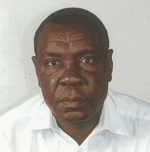Zambia: Scott out as Lungu tries to stamp authority on new cabinet – By Arthur Simuchoba

 The cabinet of the new Zambian President Edgar Lungu contained few surprises. All but five ministers under the late President Michael Sata were retained. Still, there are rumblings of discontent and reports of planned demonstrations by members of the governing Patriotic Front (PF).
The cabinet of the new Zambian President Edgar Lungu contained few surprises. All but five ministers under the late President Michael Sata were retained. Still, there are rumblings of discontent and reports of planned demonstrations by members of the governing Patriotic Front (PF).
The new president is plainly irritated. Speaking during the swearing in of senior police officers on February 19, he revealed that he was aware of plans by party members to demonstrate against some ministerial appointments:
“My colleagues in the PF want to undermine my presidency. They feel that some people are not good enough because they are perceived to belong to an opposition party and they want to take to the streets. Let me warn those who want to do so that we will meet them punch-for-punch…they cannot tell me who to appoint or remove.”
He returned to the same theme two days later during a visit to his old parliamentary constituency in Lusaka. This time, he invited those who had not accepted him to leave Zambia – it being a crime under Zambian law not to acknowledge him. He vowed to “crush” those in the party who were bent on challenging him.
The source of discontent in the PF is the inclusion in the cabinet of two ministers from the opposition Movement for Multi-Party Democracy (MMD) –Michael Kaingu (Education) and Vincent Mwale (Youth and Sports). The naming of Margaret Mwanakatwe, the one- time CEO of Barclays Bank Zambia as the new Minister of Commerce, Trade and Industry (even though she had no known links to the PF) also did not go down well. Members of the PF consider these to be occupying positions that are rightly theirs.
“Why should he appoint ministers from the opposition and leave out the owners of the party?” asked a senior party official. “I feel Michael Sata’s legacy has been betrayed. This is no longer PF. It is a mixture… All those who were left out were PF founders and will regroup to fight for what belongs to them,” he said ominously.
But their new leader is not about to buy that: “I have a duty to recognize my friends who supported me and I have two ministerial positions for them. We promised our friends that if you help us, we will help you.”
But that wasn’t the last word on the issue. There had been growing anxiety over the new cabinet as it was being put together in a seemingly piece-meal fashion. Shortly after he was inaugurated on January 25, the new president named Inonge Wina, the former Minister for Gender Affairs and Chairperson of the PF, as his Vice President.
She has become the first woman to hold the post. She had been instrumental in Mr. Lungu’s managed “˜election’ as leader of the PF. Subsequently, he named the Home Affairs minister Ngosa Simbyakula as the new Justice Minister and instructed him to quickly resuscitate the stalled constitution – partly with the intention of quieting NGOs critical of him over the matter.
Thereafter, cabinet appointments have come in dribs and drabs. Not until February 12th was the full list disclosed and those on it sworn in. Only five members of the old cabinet did not make it, among them being the Vice-President Guy Scott, who had been the acting president in the interim administration, and the former Local Government minister Emmanuel Chenda, who remained close to Dr. Scott throughout.
Also excluded were two contenders for leadership of the PF: former Commerce Minister Robert Sichinga and Agriculture Minister Wilbur Simuusa. Out in the cold was also the Lands Minister Mwansa Kapeya. But most retained their old portfolios and only a few were assigned new ones.
There were, however, some early suggestions of dissent. The new Gender Minister, Nkandu Luo, who pre-election speculation had as a possible vice-president, seemed to snub the official swearing in ceremony. This prompted the president to warn that there was no shortage of manpower and he could fill the position if Prof. Luo was not interested. She relented but offered no explanation for her absence.
The new president clearly wants an end to this discontent and appears determined to stamp his authority on the party. This may prove to be a challenge. There has been a lot of talk since the January presidential election about an impending merger between the governing party and the MMD, which has virtually disintegrated. The strong showing of Hakainde Hichilema, leader of the United Party for National Development (UPND) shook the PF. Its purpose now appears to be to ensure that he does not win the scheduled elections in 2016 and it will explore every avenue to “shut him out.”
But in the event of a merger, the present jockeying for positions would escalate, perhaps to breaking point, as PF members will not countenance being passed over for people from the opposition. Discontent in Lungu’s party may indeed worsen.
What has worsened is the economy. It is reeling from the effects of the falling price of copper; the country’s main export (accounting for nearly 80% of export earnings). The knock-on effects are now manifest.
The currency, the Kwacha, recently slid to its lowest level in eight months. A new Governor of the Central Bank, Denny Kalyalya, has been appointed but the key to economic health is largely tied with an improvement in the copper price.
More fundamental still, the issue of the new mineral royalty–based taxation system for the mines has not been resolved. Mining companies insist that without a review, they could be forced to suspend operations and scale back investment.
The Government has so far remained adamant that the new tax system is meant to end “fraud” and is final. The stand-off continues, as does that between the new president and disappointed members of the governing party.
Arthur Simuchoba is a freelance journalist based in Zambia.






